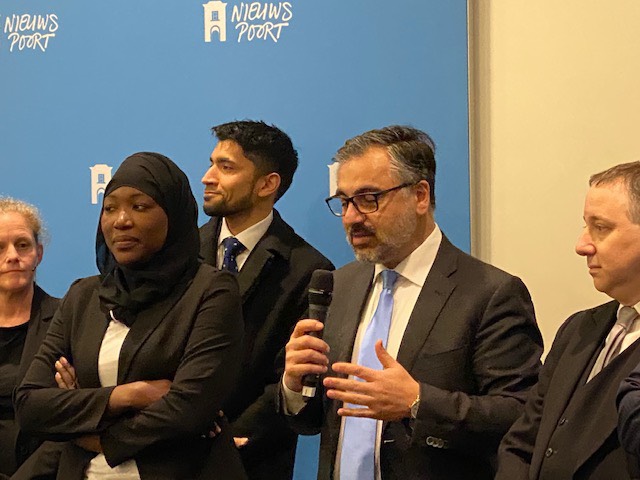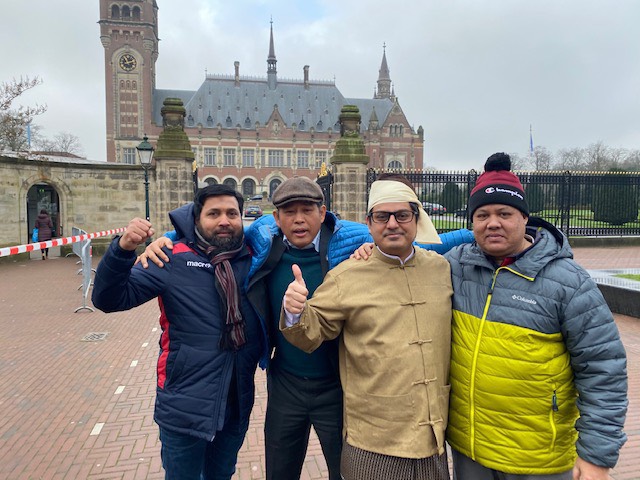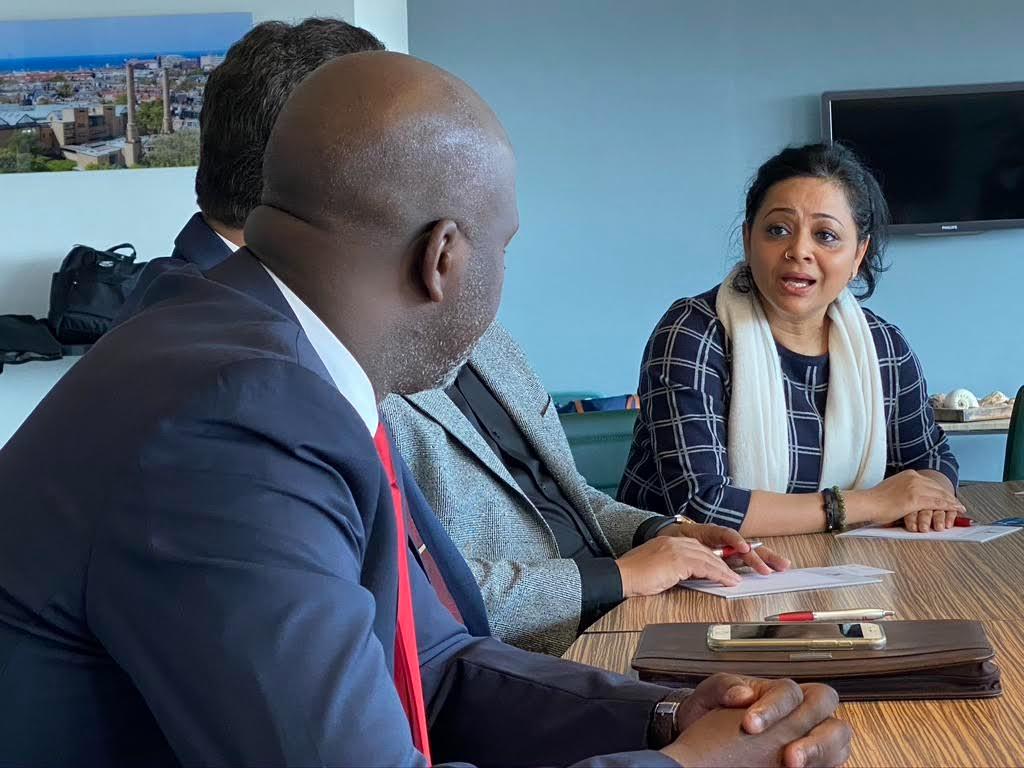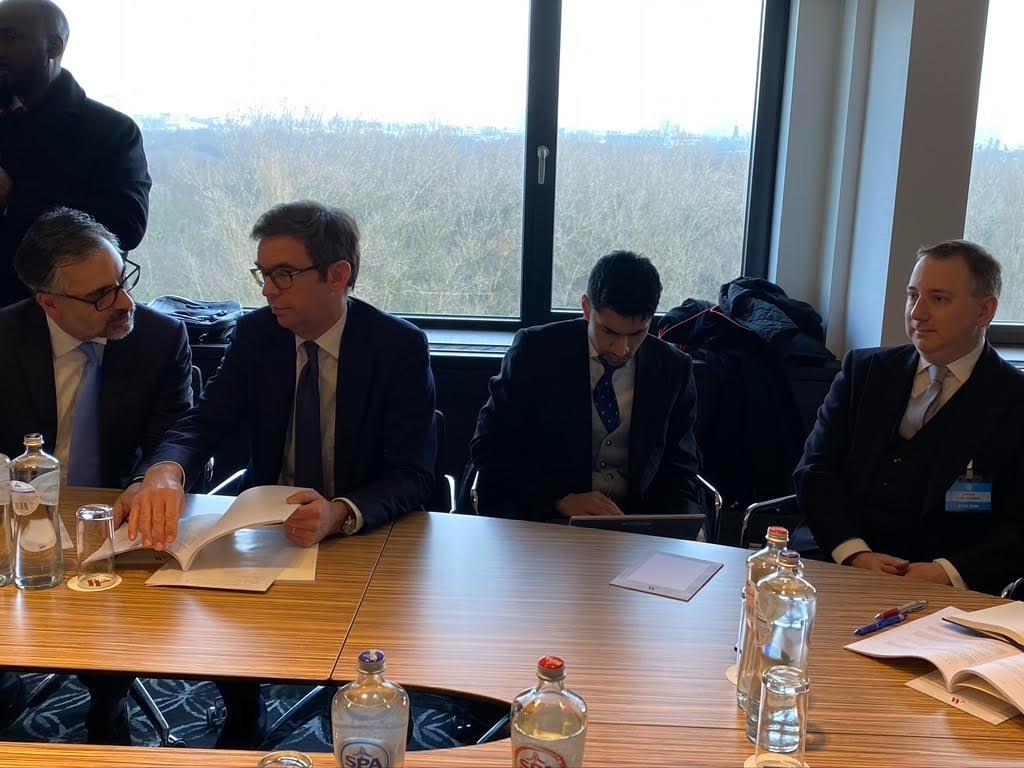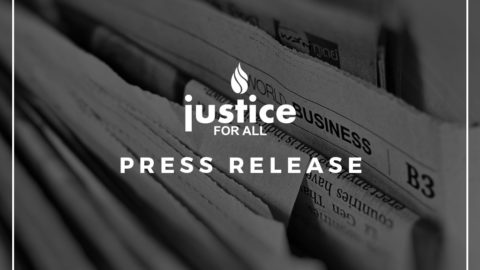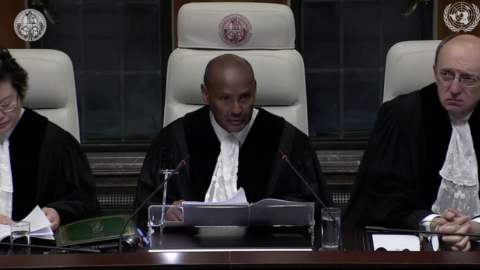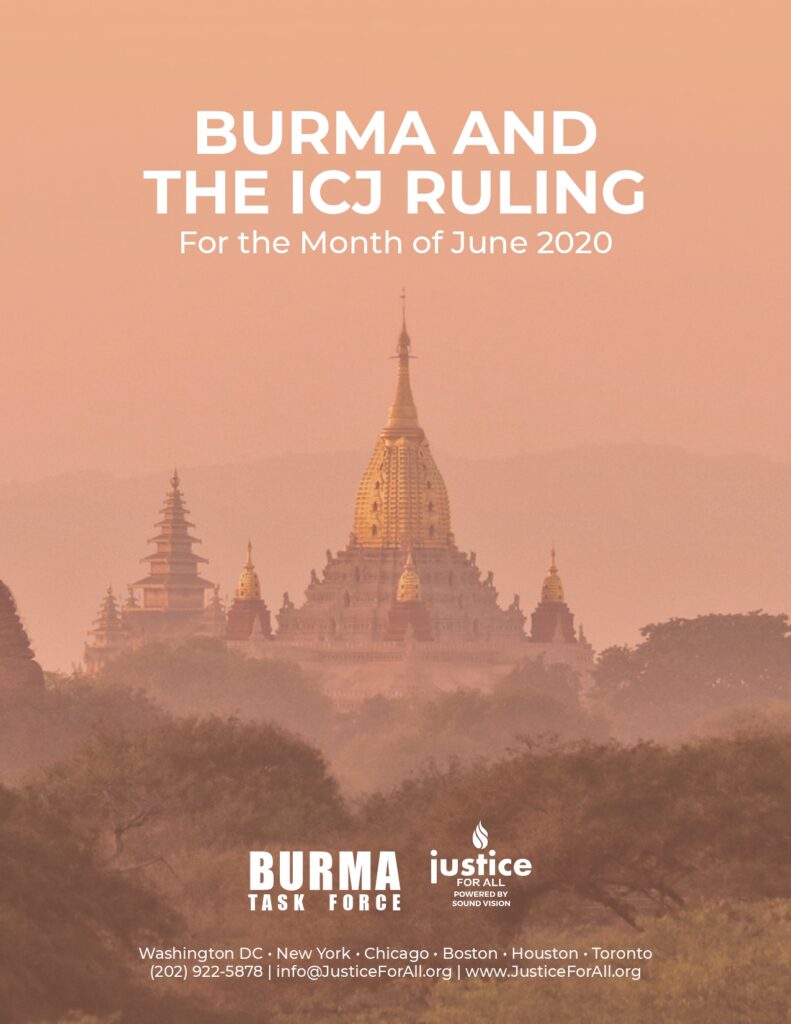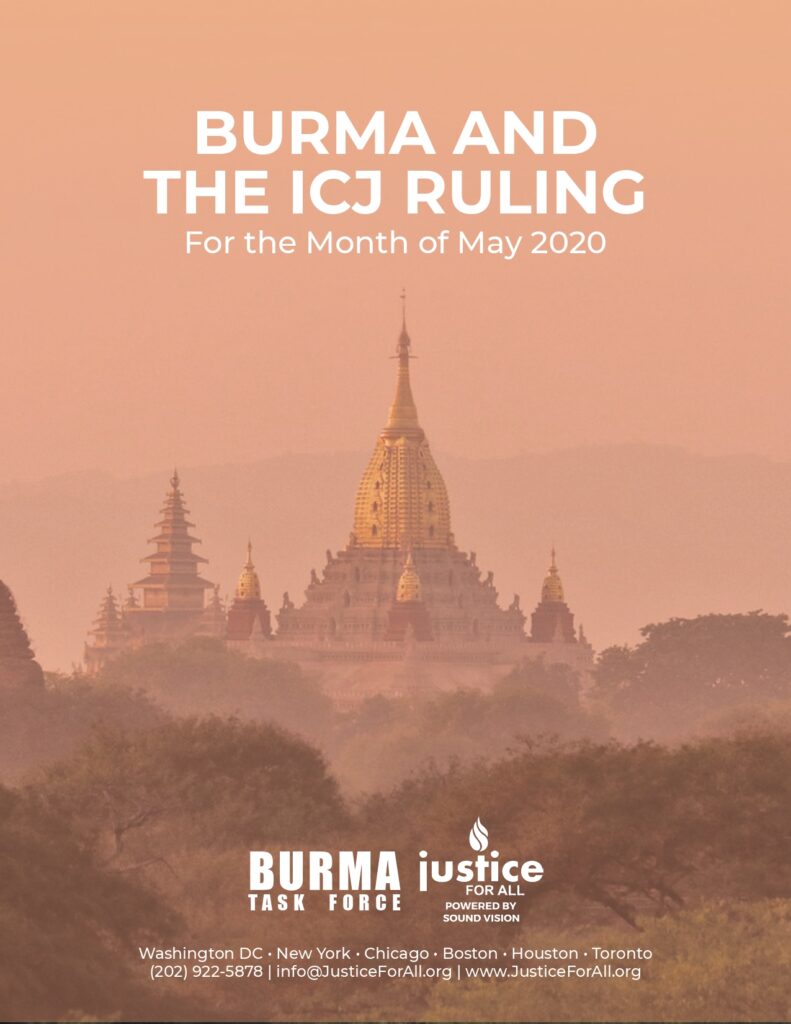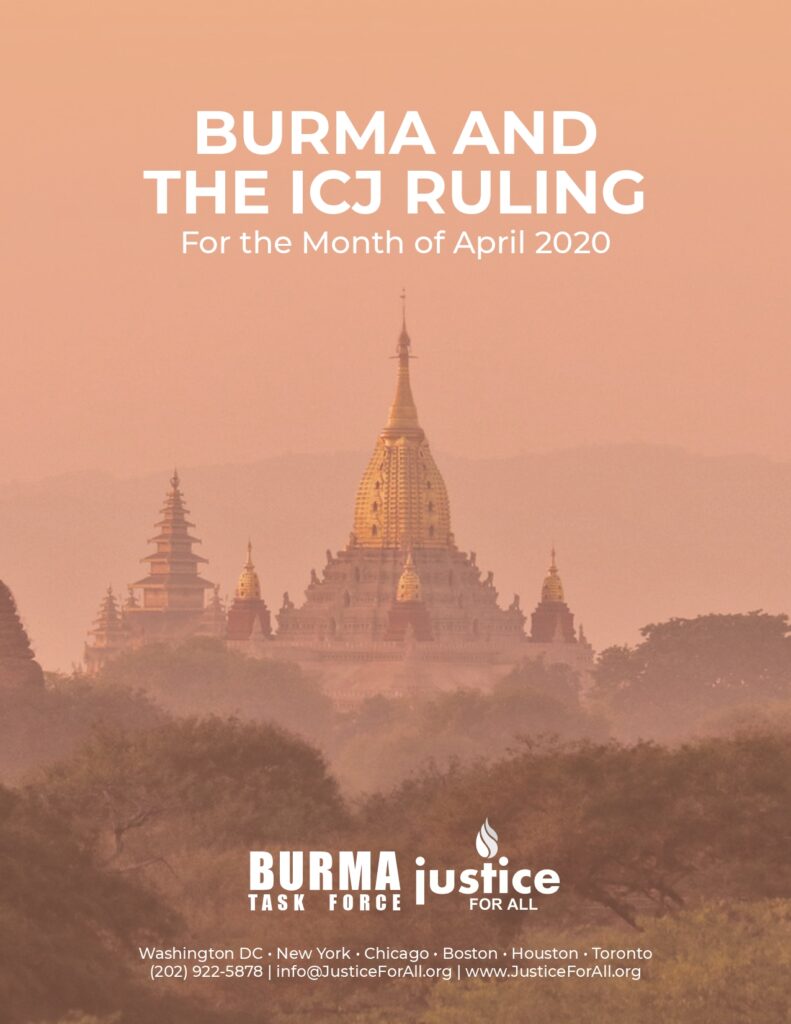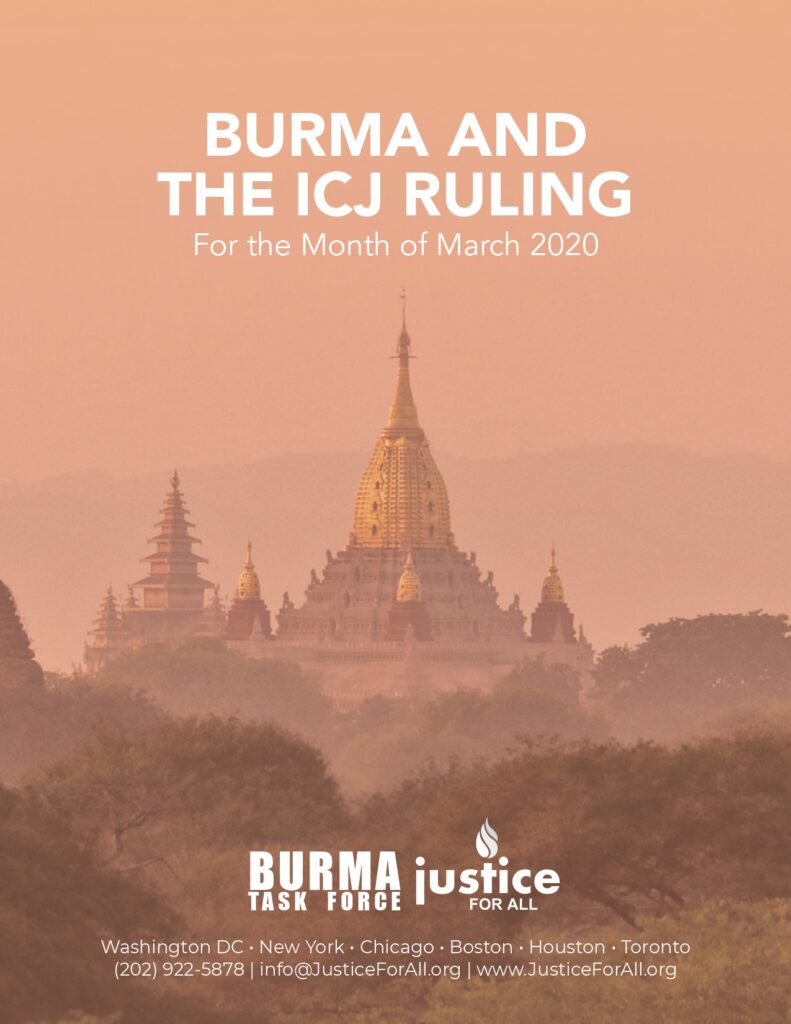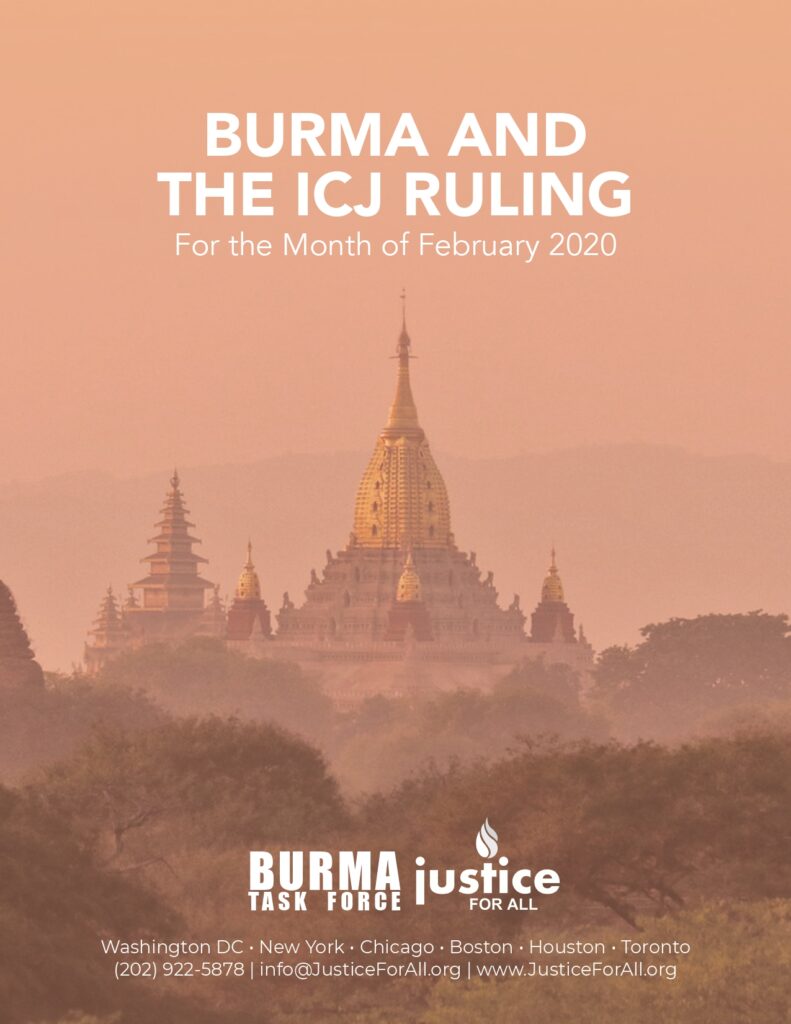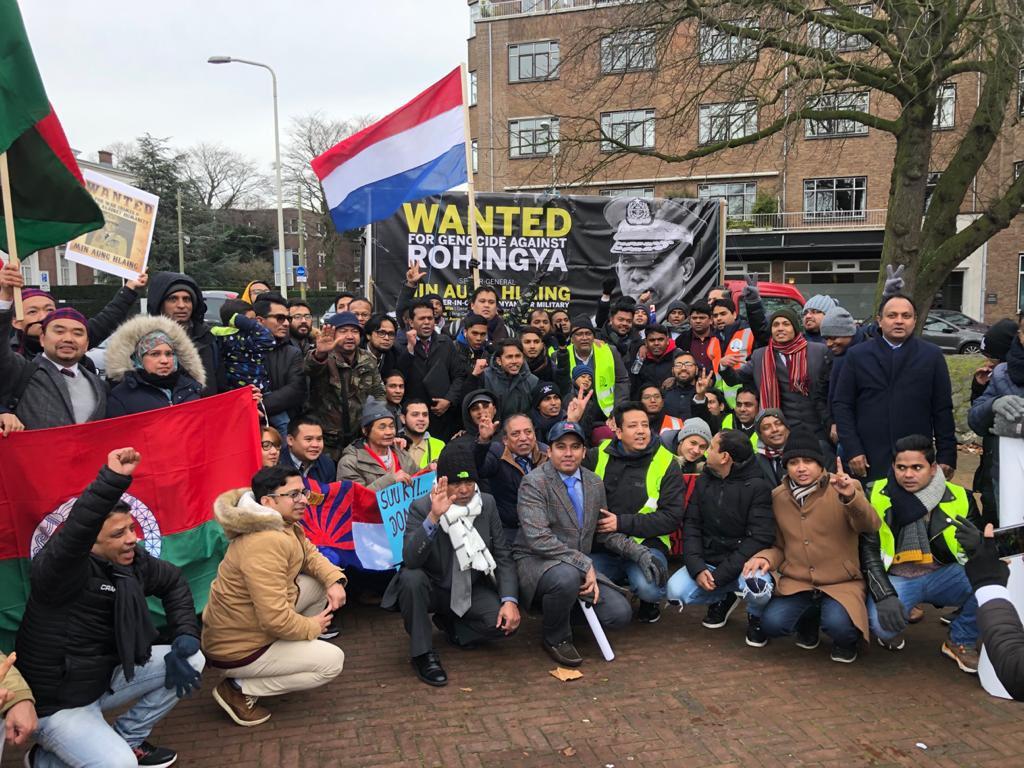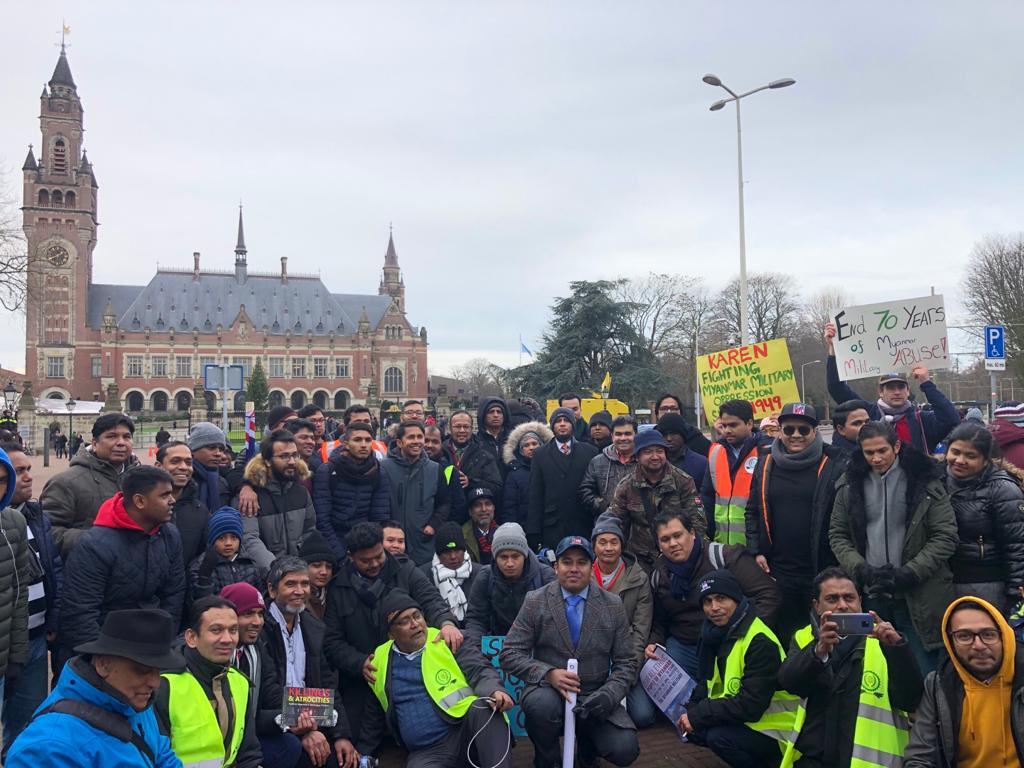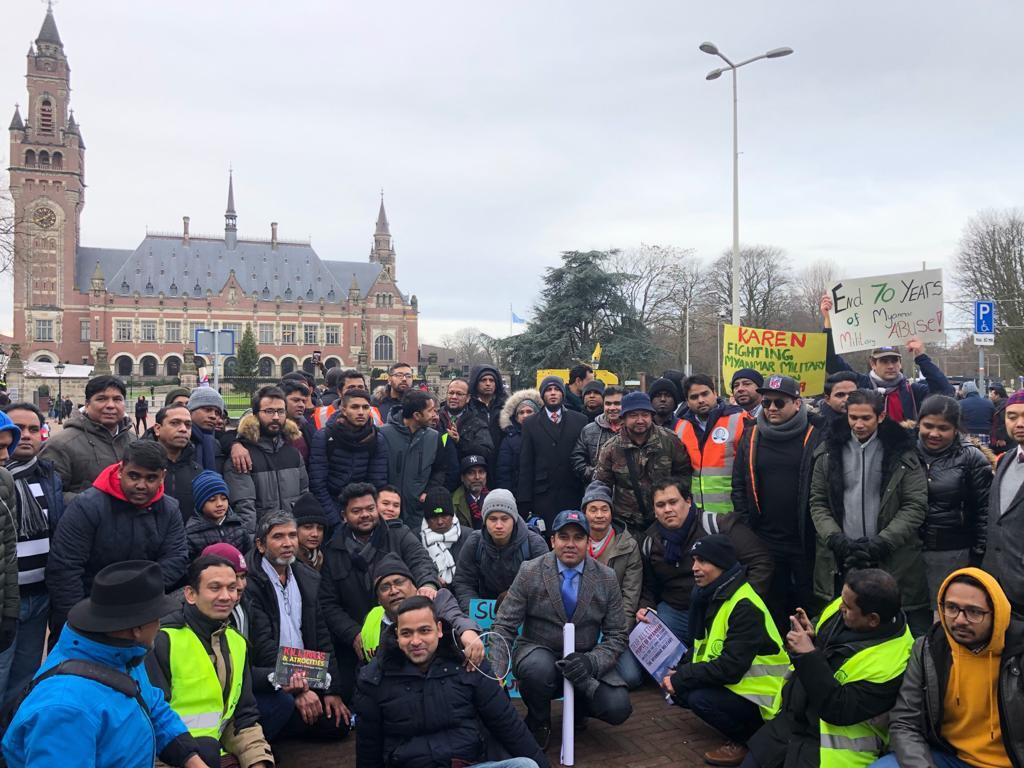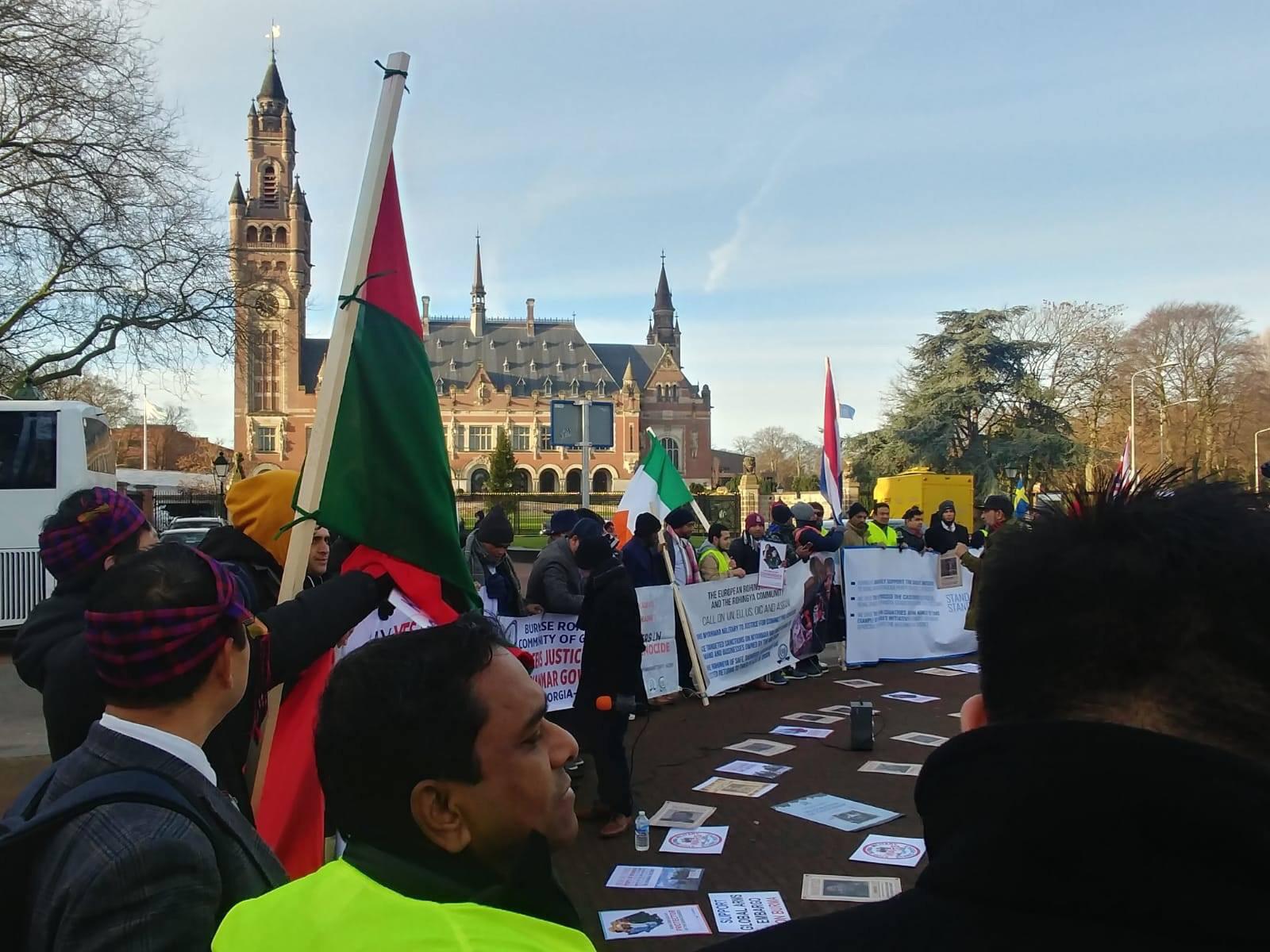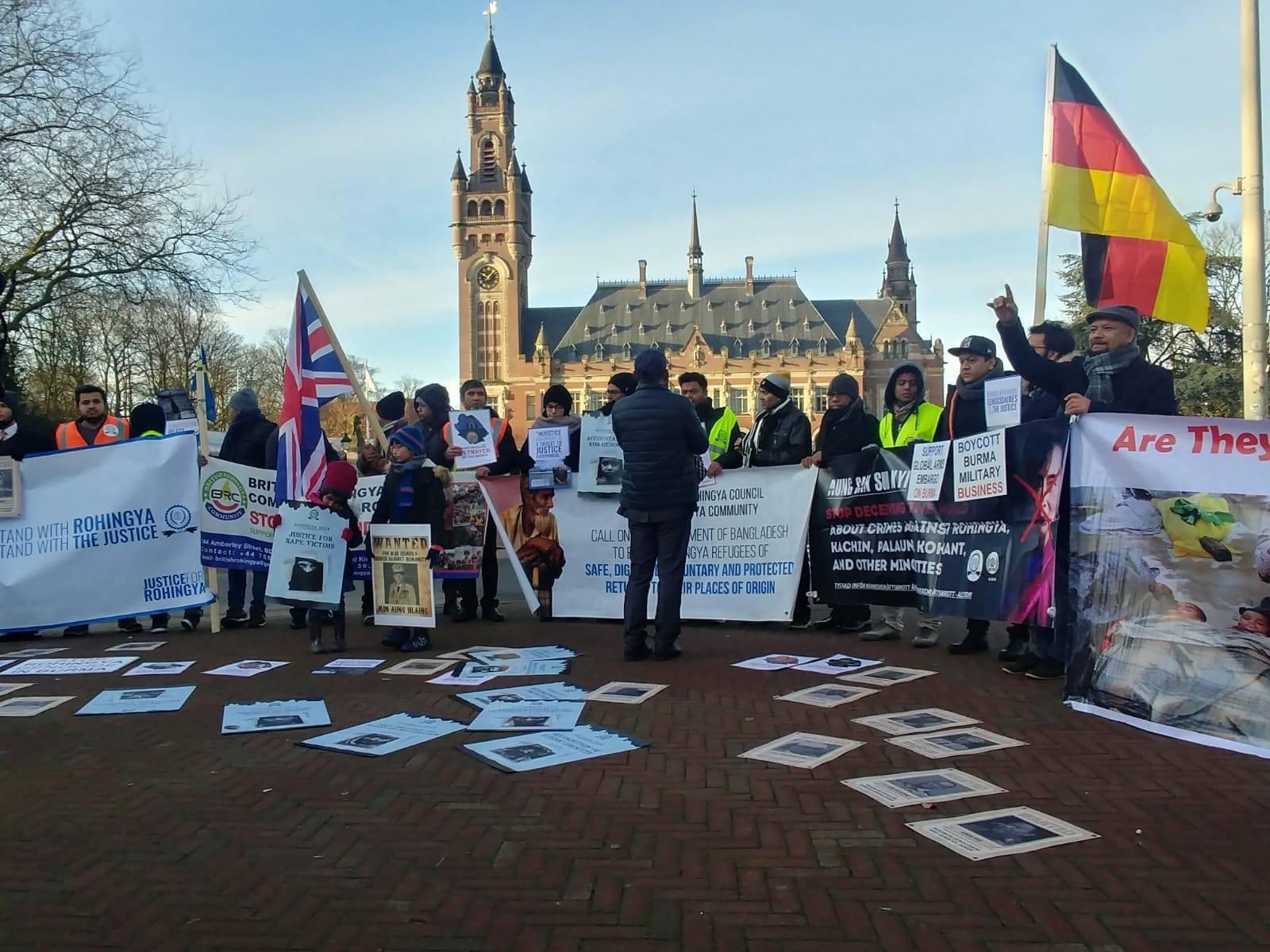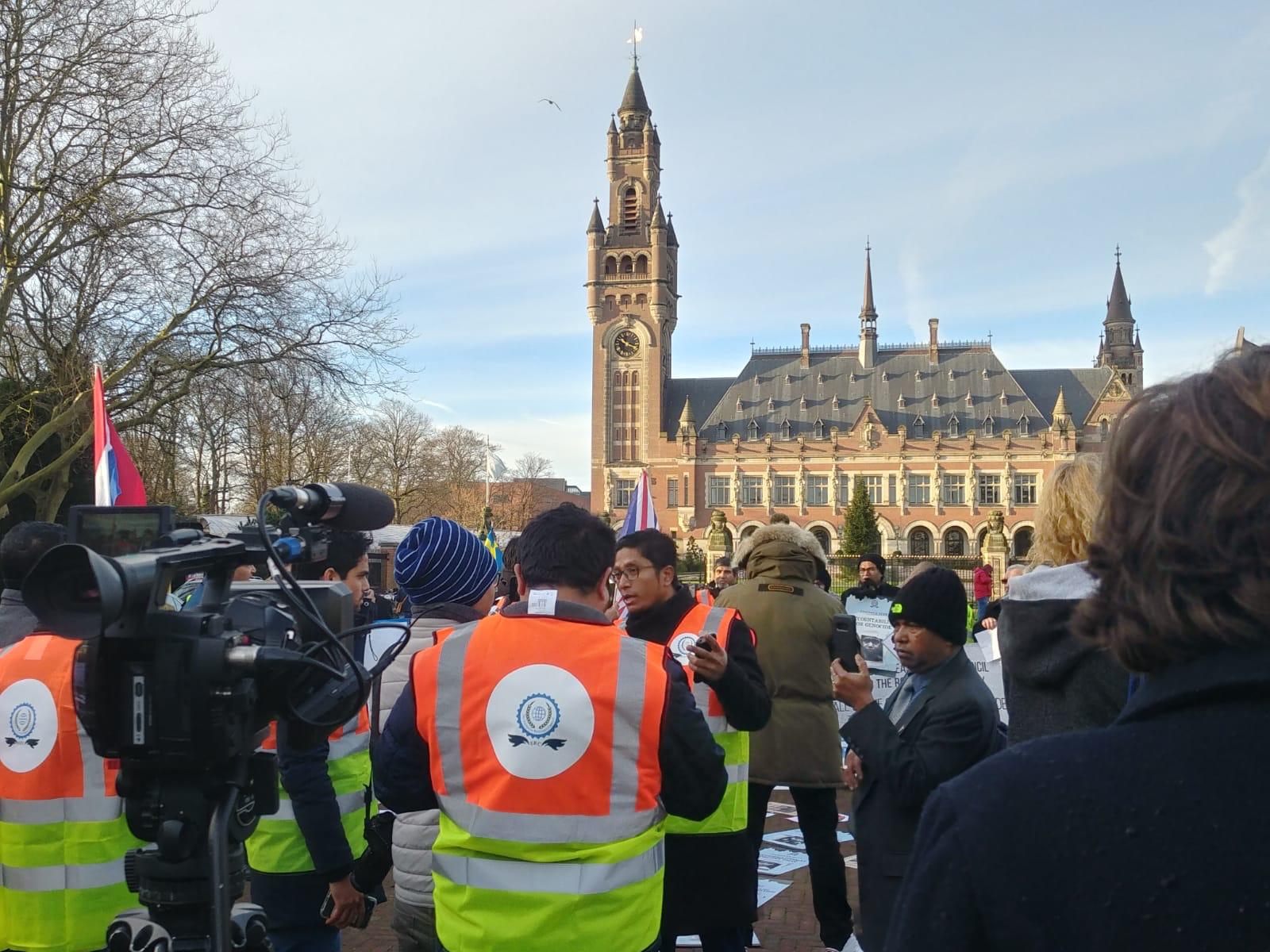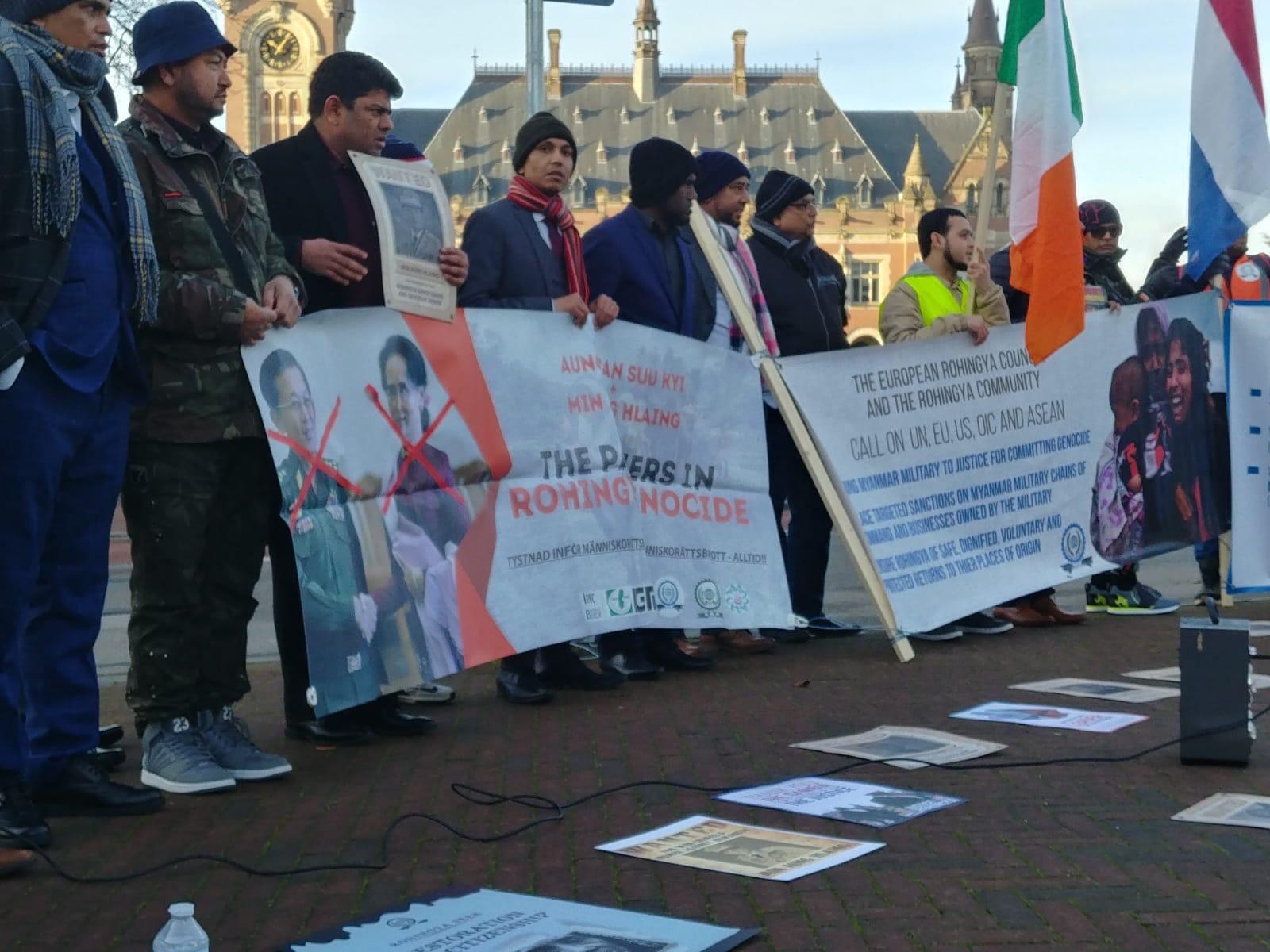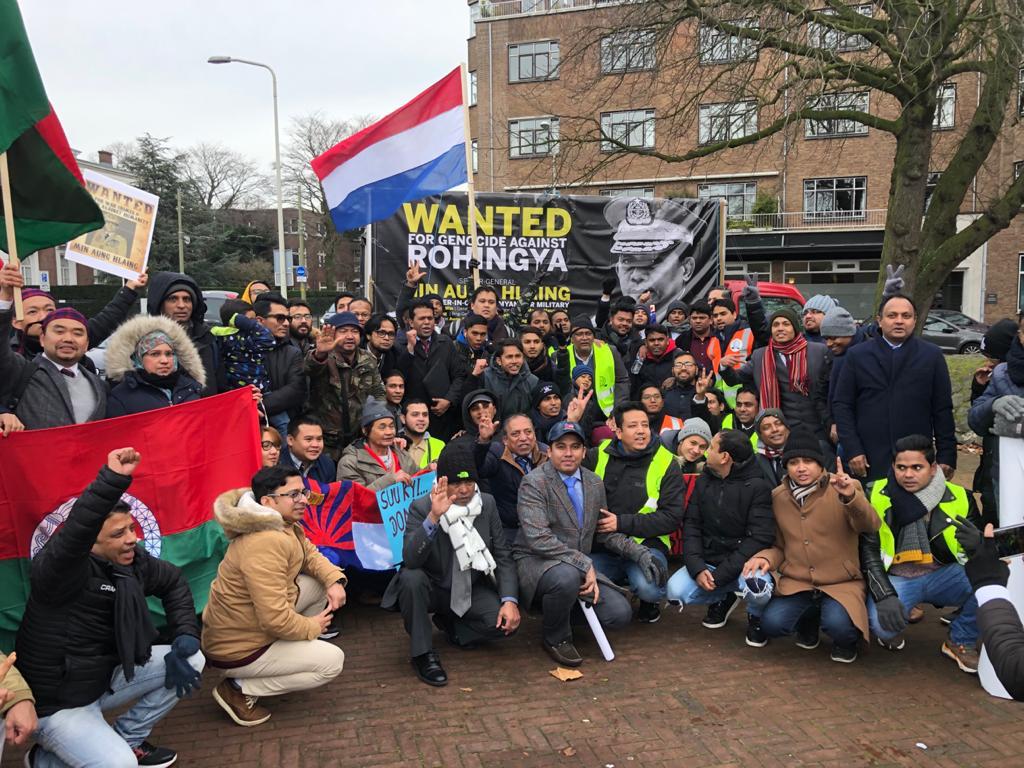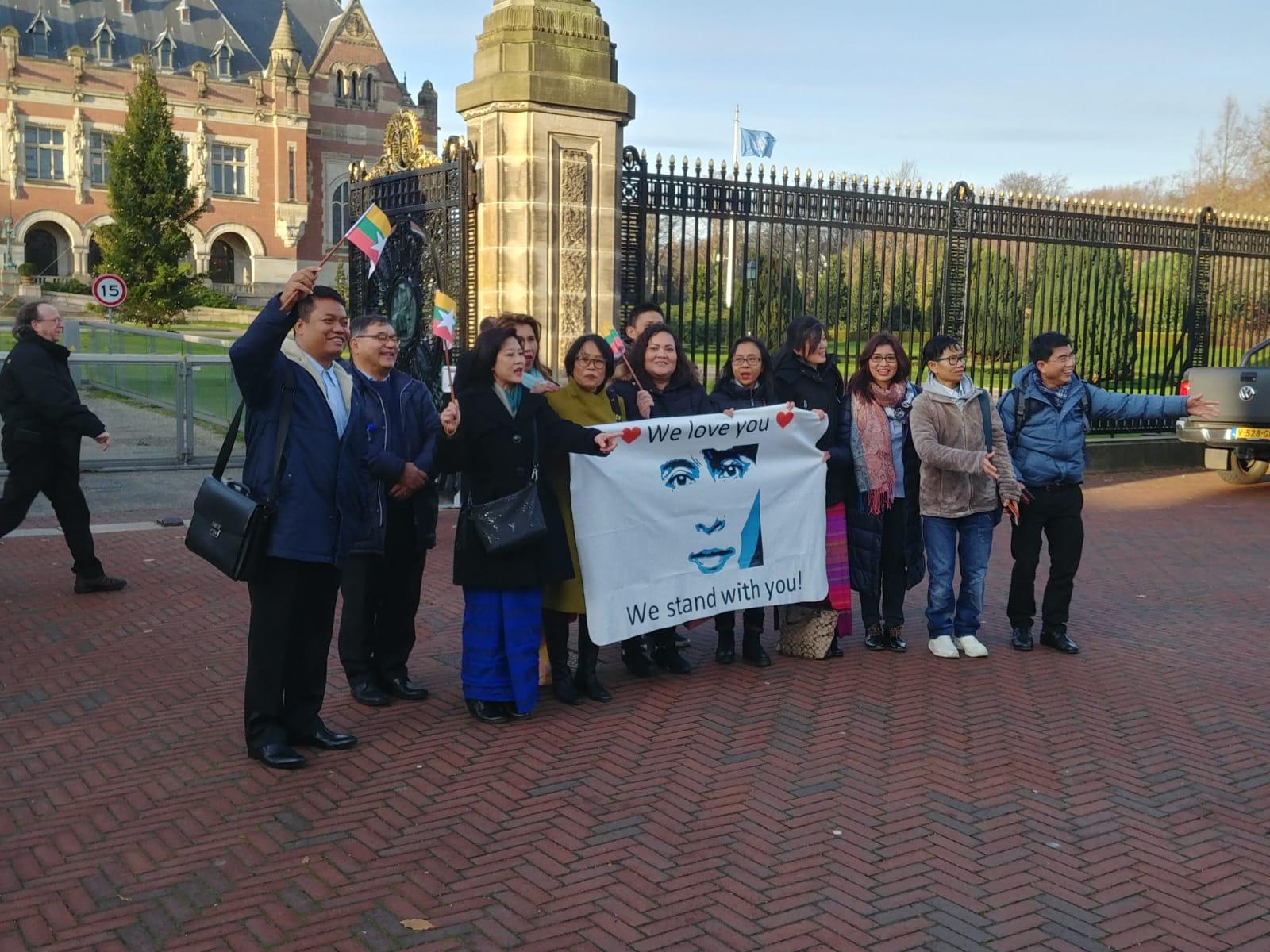In its landmark decision, the International Court of Justice (ICJ) declared that Rohingyas must be protected against genocide.
Here are the four major decisions that the ICJ’s panel of 17 judges:
- It established that the court has the right to hear the case. It also ruled that the Gambia was well within its rights to bring this case to the court under the Genocide Convention, contrary to Burma’s contention that it had no such right.
- It ordered Burma to protect all 600,000 Rohingyas who are left in Burma from all military, and paramilitary forces from harming them physically or mentally.
- The court ordered Burma to preserve all evidence of genocide.
- The court asked Myanmar to submit a report within 4 months .
The ruling of the court was unanimous, including even the assent of a Burmese and Chinese judge.
Burma Task Force, a project of Justice For All. now asks Burma and Bangladesh both to allow Rohingya the right to education, the right to earn a living and the right to travel as soon as possible.
On November 11, 2019, The Republic of The Gambia filed suit against Myanmar (Burma) in the International Court of Justice (“ICJ”) for violating the Genocide Convention. According to the UN Human Rights Council-mandated Independent International Fact-Finding Mission on Myanmar (FFM), the treatment of the Rohingya population amounts to genocide, crimes against humanity, and war crimes. In its final report, published in September 2019, the FFM concluded that “the State of Myanmar breached its obligation not to commit genocide” and found that Myanmar “continues to harbor genocidal intent” towards the Rohingya.
This pivotal lawsuit at the ICJ brings a critical focus to Burma’s responsibility as a state for genocide and compliments ongoing investigations into individual accountability at the International Criminal Court.
First round of oral observations of The Gambia
First round of oral observations of Myanmar
Second round of oral observations of The Gambia
Second round of oral observations of Myanmar
Videos Courtesy of the ICJ. All rights reserved.
Verbatim record 2019/20
Press release 2019/54
Verbatim record 2019/21
Public sitting held on Thursday 12 December 2019, at 4.30 p.m., at the Peace Palace, President Yusuf presiding, in the case concerning Application of the Convention on the Prevention and Punishment of the Crime of Genocide (The Gambia v. Myanmar)
Procedure(s): translation missing: en.applications-for-permission-intervene
Verbatim record 2019/19
Verbatim record 2019/18
Press release 2019/49
Press release 2019/47
Application instituting proceedings and Request for the indication of provisional measures
Our team is currently writing an analysis of the case. Please check back later.
This is the last chance for her to restore her international stature. The best thing she could say would be to admit that crimes have been committed and [that she will] cooperate. Evidence of genocide should be preserved, the Rohingya should have their citizenship restored and be allowed to return.”
Imam Abdul Malik Mujahid to The Guardian
Full article here
“I’m sure she is doing a disservice to her government and her cause by showing up… She is providing infamous star power to the case.”
Imam Abdul Malik Mujahid to The NY Times
Full article here

